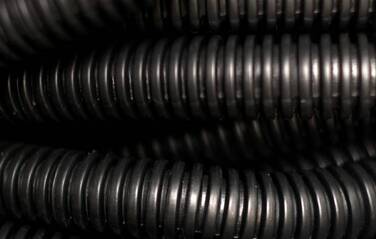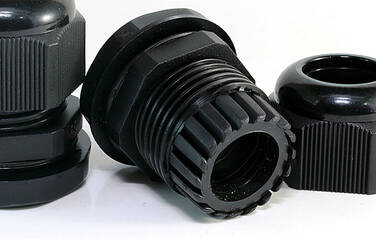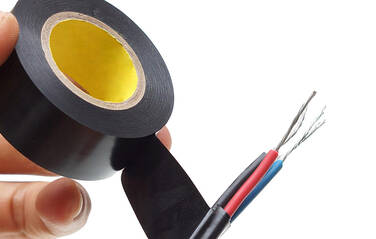Electrical conduit comes in many forms, from rigid metal conduit to flexible polypropylene conduit. Our guide explains the differences between them and how and when to use them.
What is electrical conduit?
Electrical conduit is tubing designed specifically to conduct electricity, that is used in electrical installations to route and protect electrical wiring. It is used in all areas of a building, both commercial and domestic, and in interior and exterior situations. In most wiring systems, insulated electrical cabling is run inside walls and floors without conduit which is typically used for exposed, surface-mounted or buried wires that need to be protected from damage.
Types of electrical conduit
Electrical conduit is tubular and can be flexible or rigid. It can be made from plastic, steel, aluminium, or copper. At cableties-online, we sell two types of flexible plastic conduit made from polypropylene.
Features of polypropylene
Polypropylene is a thermoplastic that is used in a wide variety of applications. Tough and durable, polypropylene offers excellent insulation, which makes it ideal for electrical conduit. Offering a good resistance to chemical corrosion, and with a high melting point, it is not only lightweight and pliable but also resistant to cracking.
The benefits of electrical conduit
Using impenetrable electrical conduit is the perfect solution for protecting wiring from water, oil or dirt. Polypropylene conduit’s high melting point means it is heat and fire resistant too, which offers protection to electrical sockets against overheating.
Conduit from cableties-online
We offer split and non-split flexible conduit manufactured from polypropylene. Sold by the length in metres, our conduit is available in a range of internal diameter sizes up to 26.5mm. We also supply installation tools, conduit glands and polyethylene spiral wrap, as well as an extensive range of other electrical supplies. Flexible conduit is much more user-friendly than rigid conduit and is easier to work with, albeit offering slightly less protection than rigid types of conduit.
When to use electrical conduit
Generally used to protect against electrical fires, conduit can also protect wires and cables from the dangers of being chewed through by household pets! It serves an aesthetic purpose in hiding unsightly wiring and cabling from view and its role in perfect under-desk cable management cannot be underestimated, as it can keep cabling tidy where it could otherwise pose a trip hazard in the workplace.
Why shop at cableties-online
Cableties-online has over 15 years’ experience in the provision of wiring accessories to both the trade and private sectors. Our large stock levels allow us to offer fast and efficient delivery, and we offer free delivery in the UK for all orders over £50. So, whether you are a jobbing electrician or an office manager trying to comply with HSE guidelines, and you are looking for flexible electrical conduit, we can help. Simply call our sales team on 01623 412160 or send us an email to sales@cableties-online.co.uk








